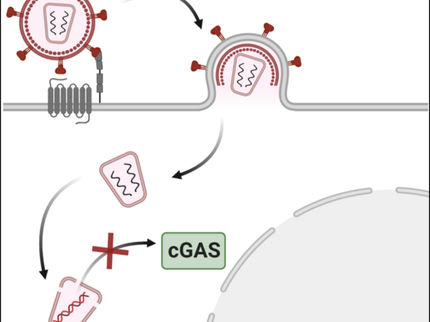Phase 2a Study of HIV-1 Investigational Maturation Inhibitor
Demonstration of positive results for therapy designed to attack virus in a new way
Advertisement
Bristol-Myers Squibb Company announced overall antiviral activity and safety results from the three-part Phase 2a proof-of-concept study of BMS-955176, a novel investigational therapy designed to prevent the maturation of HIV-1.The study findings support the continued development of BMS-955176, an investigational therapy from a potential new drug class that is designed to attack the HIV-1 virus differently than other available treatments.
BMS-955176 is a second-generation maturation inhibitor designed to inhibit one of the last steps of the HIV-1 viral lifecycle, which is theorized to disrupt the “maturation” of new virus particles and cause the release of immature HIV-1 particles that are unable to complete their lifecycle. The overall results of the study demonstrate BMS-955176’s antiretroviral activity against the HIV-1 virus as both monotherapy and in combination with other antiretroviral medicines, and across patient subtypes (B, C), including those infected with the HIV-1 virus with changes in a critical protein (“Gag polymorphisms”) that were not responsive to a previously investigated maturation inhibitor. Please refer to the “Study Design and Results” sections below for the specific data presented.
“Life-long management of HIV-1 infection requires sequencing of antiretroviral therapy to stay ahead of resistance and long-term tolerability challenges, and there is a need for new options for treatment-experienced patients,” said Douglas Manion, M.D., head of Specialty Development, Bristol-Myers Squibb. “The overall findings of this proof-of-concept study confirm that BMS-955176 should be studied further in Phase 2b for patients in need of new antiretrovirals.”
Maturation is one of the final steps in the HIV-1 lifecycle and occurs when the virus breaks connections between structural proteins. As a result, these proteins then undergo changes that produce fully mature infectious virus particles, which are released from cells with the ability to infect new CD4+ T-cells. BMS-955176 is designed to inhibit the last cleavage step in the HIV-1 maturation process, and thus potentially block the virus from becoming mature and infectious.
Today at EACS, Bristol-Myers Squibb presented new data from Part C of the randomized, multi-part trial evaluating the antiviral activity and safety of BMS-955176 administered as monotherapy in patients infected with HIV-1 subtype C, a type of the virus that has a higher prevalence of the naturally occurring changes in the Gag polyprotein (a critical protein for viral replication). Taken together, data from all three parts of the Phase 2a study support the further evaluation of BMS-955176 in broader global studies.
Part C Study Design & Results
Part C of the trial evaluated the antiviral activity and safety of BMS-955176 administered as monotherapy for 10 days. The study included 19 treatment-naïve or treatment-experienced patients (who had not previously received a protease inhibitor- or maturation inhibitor-containing regimen) infected with HIV-1 subtype C with plasma HIV-1 RNA ≥5,000 c/mL and CD4+ T-cell count ≥µL. Patients were randomized to three dose groups: BMS-955176 40 mg (n=8), BMS-955176 120 mg (n=7), or placebo (n=4) once daily. The primary endpoint was the change in HIV-1 RNA from baseline to Day 11.
There were no deaths, SAEs or AEs leading to discontinuation of treatment.
Two Phase 2b studies of BMS-955176 began in 2015 and are ongoing, including a traditional dose-finding study in treatment-naive patients and a study to evaluate an innovative nucleos(t)ide- and booster-sparing regimen in treatment-experienced patients.




















































